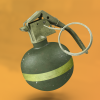The periphery affects esports’ development no less than the players and tournament operators. It is the people who create content on the community side are promoting CS:GO to the masses and connect more and more people every day. In addition, content creators also have a chance for fame and a salary, obviously less than that of professional players, but at a fairly serious level.
Plus, we have a cool event going on right now – GameChanger Hub. And even in this article we’ve hidden a promo code that you can use to win even amazing prizes!
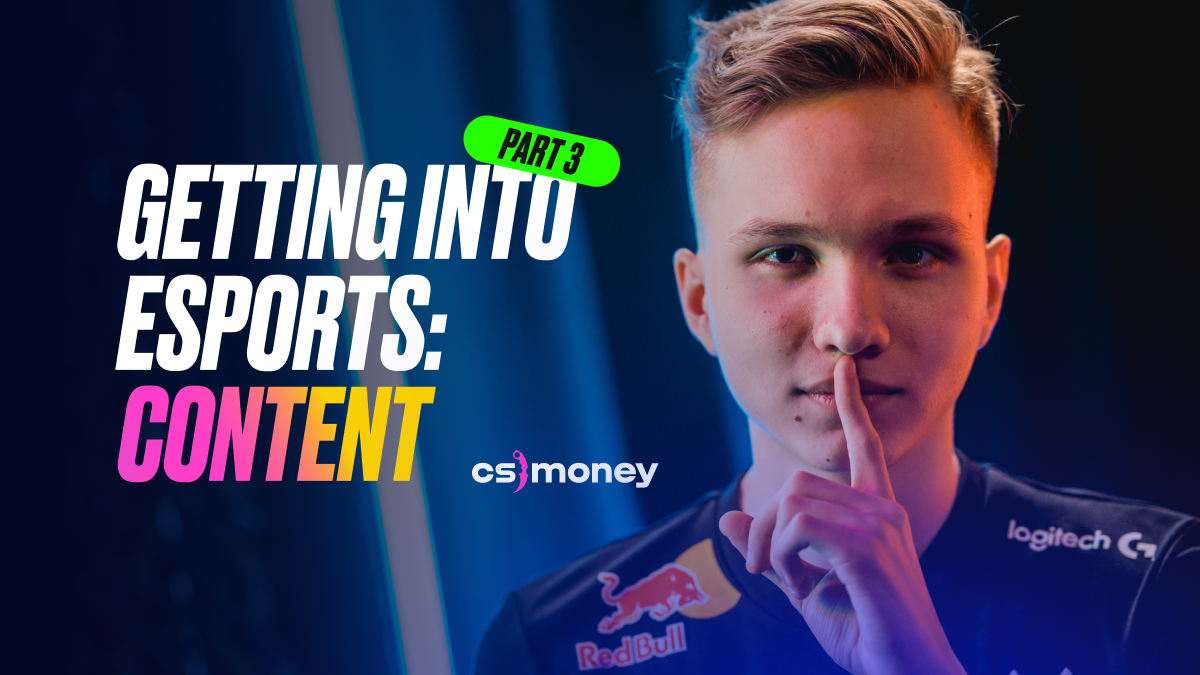
YouTube, Twitch, Twitter, Instagram, TikTok, and many other platforms are a chance for anyone who wants to prove themselves and win a place on the stage. However, this requires a lot of work, a well-developed strategy, consistency, uniqueness and many other things. In addition, you’ll have to sacrifice things to succeed. So before you get into content creation, answer one question: would you be able to maintain at low rates until you succeed? This niche is no less competitive than CS:GO esports itself, trust us.
Another part of the Getting Into Esports series from CS.MONEY Blog, as you might have guessed, is dedicated to the creators, authors, artists, whatever you want to call it. And this time, we decided to ask the people themselves. Three content creators of different plans and platforms: an analyst, an interviewer and a blogger will talk about how to get into esports, what to do and how to avoid mistakes, share own and others’ sacrifices, and also give a couple of practical tips on creating content.
We took three middle-level people in the CS:GO scene precisely because they are not yet spoiled enough by a huge fan base, they are quite smart and do their job well, not lazy. Their perspective on content creation is very fresh and their paths are unique.
The One Who Did It For The Hood
Alexander “Hawka” Hawkins is a commentator and analyst. He started working from Qualifiers for the lower and unnamed leagues, but he worked hard and gave everything to the dream. Then, a couple of times he was invited to larger tournaments, thanks to a subtle understanding of the game and the ability to correctly analyze team and individual actions, and not just shout into the microphone. He has already got close to the Tier-1 scene and constant Major trips are just a matter of time. In addition, Hawka has his own YouTube channel, where he publishes, among other things, short and non-standard videos, such as analysis of tactics at certain points on the maps with different players involved. This, among other things, can be learned and performed in your matches.
His main advice is to start with the local scene, but, hey, read for yourself.
One of the things that helped me most when starting was putting myself out there and getting to know people in as many ways as possible. This isn’t always easy – for me personally, and I’m sure for a lot of others, getting involved in esports came from being a little awkward and anxious in real life. But the great thing about talking to people in esports is that you already know you have a common interest you can talk about, and the majority of people are really understanding and welcoming!
Ideally this would come from meeting people at live events, since meeting in person will always allow you to really show your passion for esports and fully connect. I know a massive amount of people that have got into esports from the U.K. started by visiting or volunteering at local LAN’s, and that’s where you’ll be able to meet people that can help get your foot in the door. Especially if you volunteer to help out, which local LAN’s are always looking for, it helps show a real passion for esports which people are always looking out for. If you’re a caster, this can also help you meet the other casters who will often be happy to give you introductions to tournament organisers or potentially even recommend you if they are offered work they can’t take due to their schedule.”
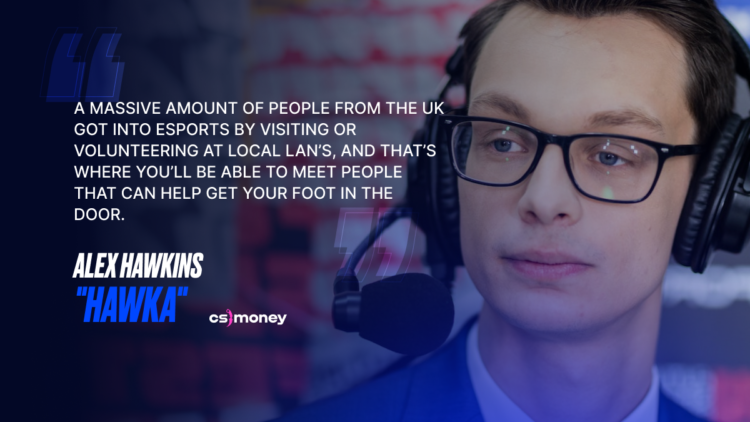
The One Who Ask Questions
Anastasija “Heccu” Tolmačeva started her esports career with… Heroes Of The Storm. She worked on this Blizzard’s MOBA for several years before the scene practically ceased to exist.
And here’s the first part of the promo code: 06P.
Now Heccu works as an interviewer for major tournament operators, joining the broadcasts after the matches and pestering the players with questions. She also has her own YouTube channel, which she started her career with: dozens of small interviews with little-known young athletes. She is constantly in the frame, covering events in hot pursuit. Heccu gave a huge speech, in which there are no useless things.
First of all, I wish to make it clear: there is no “best way” or “right way” of entering the world of esports. Every broadcast talent took a unique routh, a path that worked out for them and might not provide the same results when replicated. And even though duplicating the actions does not guarantee anything, some advice can be found useful. My tips will be split into two parts: the first one will focus on how to start your path, while the second will be about the aspects that can increase the speed of your growth/progress.
HOW TO START:
Get yourself out there. Find a way of how you can showcase your skill set. Try to get involved in your local esports scene, share your content with your friends and ask them to support it. If you don’t feel comfortable doing this – then you should look for a different career path. Streaming to 5 viewers or getting 30 views on a video is NOT CRINGE, we all had to go though that at some point. Judging others while staying in your comfort zone and having 0 ambition—that’s cringe. It’s important to find a way to get those first viewers, followers, or subscribers and it’s way easier to get them from the people that know/care for you than from those who see you as another “noname on the internet”.
If you wish to be a caster, start by casting different ESEA Open, Intermediate, Main, Advanced matches. Publish your stream link on the match page. In the beginning people will come over to just watch the teams you’re covering, but those who enjoy your cast – might come back. Besides getting experience, you also get to grow your community and there is a chance of getting spotted by a tournament organiser. I also heard stories of how some talents found their duo casters by browsing the “20 viewer ESEA streams”. If you wish to be an analyst – you can also start by casting or by creating video content. This way you will be able to display your game knowledge to the public.
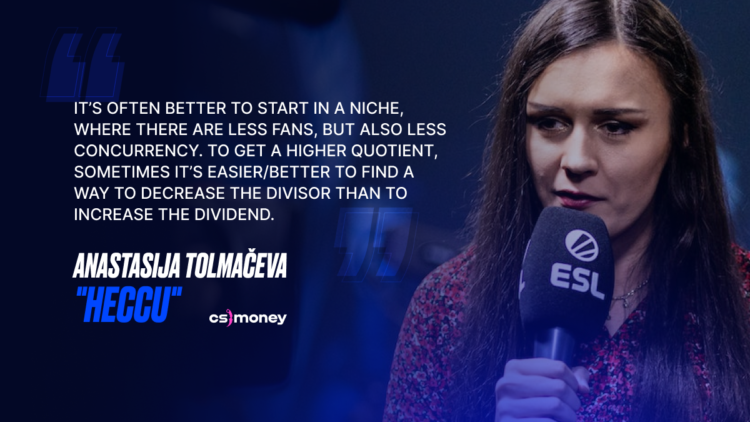
When choosing which type of videos to create, keep in mind that producing content that covers T1 teams and players—that most people are interested in—might not be the best way to start in an already established scene. Yes, those kinds of videos have the potential to gain high views, but there are many other creators who produce similar content, so you’ll all be competing for the same spectators. In most cases, the authors with the bigger names will get the larger part of the audience. This is one of the reasons why it’s often better to start in a niche, where there are less fans, but also less concurrency. To get a higher quotient, sometimes it’s easier/better to find a way to decrease the divisor than to increase the dividend (e.g. 100.000 viewers and 200 creators < 10.000 viewers and 10 creators). Also, whenever you create a video around a less known player, team or event, you have a higher chance for the subject to share your content. This will result in your video being displayed to more people. There is also a possibility that the subject of your content will get interested in working with you in the future, since you’re already “up to date on the topic”.
Unfortunately time and private life are not the only things that you’ll be forced to give away in the name of succes. In the beginning your income, profit or simply money is often in the ranks of the things that are being sacrificed. I frequently hear stories of how broadcast talents and photographers worked for free, covered their flights and accommodation or slept on a LAN floor just to get experience or to improve a CV. I want to make it clear to everyone: it’s VERY COMMON TO LOSE MONEY at the start of your growth. For example: by going to an event you have a chance to gain the needed experience, exposure, unique content or good contacts in the scene. When you don’t yet have an established name, finding a sponsor for a trip is incredibly—I’d say impostably—hard, so your personal finances can help you make that first push. What you do need to keep in mind is that this kind of investment is a GAMBLE and it DOES NOT GIVE you any GUARANTEES. Do it only if you can afford to spend money and get nothing in return.
HOW TO PROGRESS QUICKER:
Broadcast talents are required to possess a set of traits. They are: vocal skills (vocabulary, accent, articulation), subject knowledge (general understanding of the game and scene), appearance (your character/personality and physical appearance), social media presence (the amount of people who recognise/support you), affability (how easy is it for production and your peers to work with you) and unique perks. All types of broadcast talents require these characteristics, but depending on the role, one trait is more important than the other. And even if you did not yet “max out” the stats in one, having high numbers in others will boost your overall “score”. A unique talent or knowledge is something that can give that score a noticeable boost. It can be your deep knowledge of a particular scene, the knowledge that your peers don’t have. Example: in the English speaking talent pool there are many analysts that can provide facts about T1 teams/players, but only a few can go in depth in the discussion about T2/T3 teams from Asia, Brazil, CIS. A unique perk can also be your deep knowledge of the game, since you’re an ex-pro player/coach. It can also be your ability to talk multiple languages, a skill that will allow you to get more broadcast content. Try to find something that makes you different and thrive.
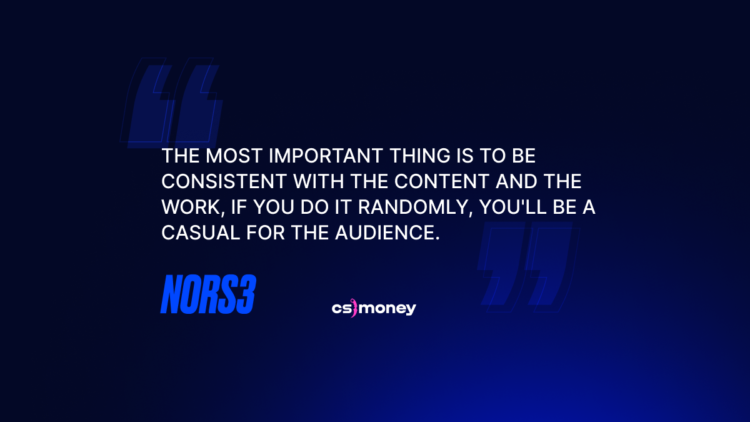
The Enthusiast
Our last adviser is a person who decided to start a blog and just write about CS:GO, interacting with the community, discussing new stuff, leaks and esports. Now he has almost 30 thousand subscribers on Twitter. And a team.
Nors3 is laconic, but touches on something that the two above didn’t mention: content persistence and stability. It is these things that will bring the fanbase and will keep it.
The most important thing is to be consistent with the content and the work, if you do it randomly you’ll be a casual for the audience. Then of course you have to put quality, and you only achieve that being informed about the game, the esports, the scene, the environment… The rest you’ll learn it from the experience, you’ll commit some mistakes and improve over time if you’ve dedication on it.
Also don’t forget that this is a super competitive environment, a lot of times you’re competing against people from all the world so try to not be frustrated if results don’t come.
Summing Up
Let’s note a few important things.
But first, the second part of the promo code: D85.
- Start with the local scene: this will help you gain experience and establish an initial base.
- Be consistent with content and invest in quality. Alas, you’ll have to sacrifice time, money, and personal life.
- Try to offer what others don’t have: language, knowledge of the local scene, unique ideas.
- Do not give up!
And be sure to read the previous parts of Getting Into Esports! In the first issue, we talk about the field in general and give a lot of advice, while the sepond edition helps find a way for those who want to play CS:GO and become athletes.









